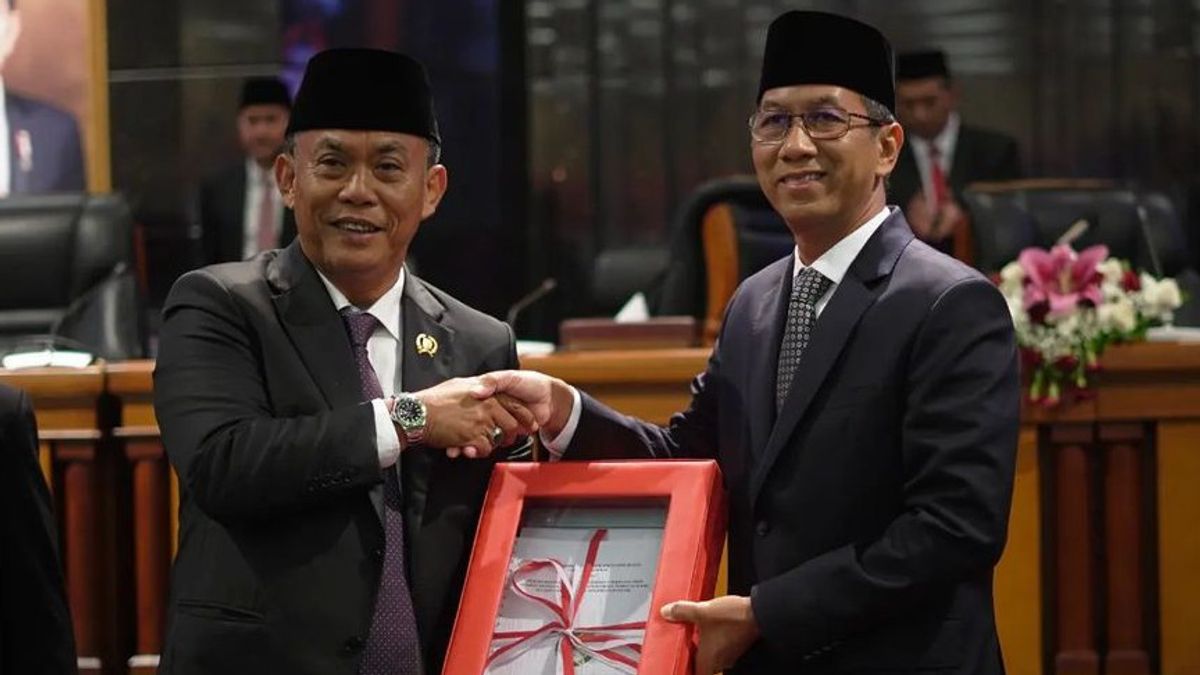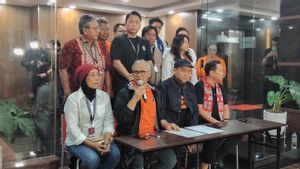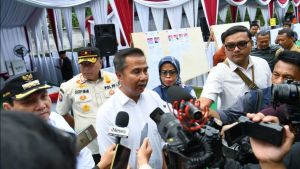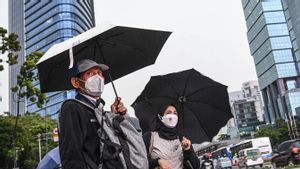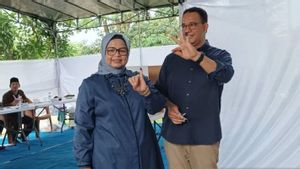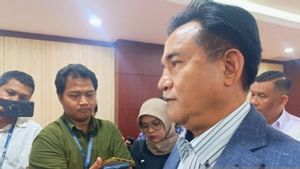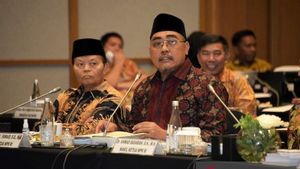The PDIP faction of the DKI Jakarta DPRD summarizes the tasks that will be the priority of the Governor of DKI Jakarta Heru Budi Hartono in 2023. Heru must immediately resolve three problems related to flood management, clean water services, and health facilities.
In handling floods, Heru is currently trying to continue a number of flood control programs that had stalled, ranging from drains to normalization of the Ciliwung River.
Chairman of the PDIP faction of the DKI DPRD Gembong Warsono views that Heru should have restarted the normalization that has stalled over the past five years. Because, while serving as Governor of DKI Jakarta, Anies Baswedan is said to have never carried out land acquisition for settlements on the banks of the riverbanks.
In the continuation of the construction of the Ciliwung Sodetan, Heru has coordinated with the National Land Agency (BPN) to accelerate the land acquisition process so that the giant culverts can be carried out by the central government.
However, Gembong encouraged all relevant regional apparatus organizations (OPD) to accelerate their duties. Thus, it is targeted that by mid-2023 the drain will be connected and can reduce the impact of Jakarta's flooding by up to 30 percent.
"There needs to be a strong impetus, Mr. Acting by mobilizing all the potential of his SKPD to focus on executing the completion of the drain program. Hopefully within the next six months, plus three months (since Heru took office), we can feel the benefits," said Gembong at the DKI DPRD Building, Jakarta, Wednesday, December 28.
Then at clean water services, Heru must be able to maintain clean water sovereignty for Jakarta residents. Moreover, starting February 1, 2023, water services will be fully run by PAM Jaya as a DKI BUMD, after the end of the cooperation contract with two private companies or water privatization.
Then, it is necessary to increase the coverage of water services in areas that have not been connected to the piping system. Currently, the coverage of PAM water services is only around 65 percent of the entire capital city.
"The coverage of 65.85 percent in 2023 must be increased. Can you not increase the percentage of coverage for five years? So, regarding services, this is our encouragement so that the DKI Provincial Government is able to provide the best service for Jakarta residents," said Gembong.
Regarding health services, Gembong highlighted the fact that there are still 15 urban villages in Jakarta that do not yet have a public health center (puskesmas).
The details are 15 urban villages in the capital that do not yet have health centers, namely Duri Selatan Village, Lima Bridge, Karanganyar, Tank, Gambir, South Sahari Mountain, Cikini, Senen, Glodok, Gondangdia, Kebon Kacang, Kemayoran, Cipedak, Karet Semanggi, and Kebayoran Lama Selatan.
"We have 267 urban villages, from the 267 urban villages, it turns out that to this day there are still 15 urban villages that do not yet have health centers," said Gembong.
In fact, according to Gembong, puskesmas is the first most basic health service facility for the community. Gembong then asked Heru to immediately fulfill the supply of puskesmas in the 15 urban villages.
"This is a homework that must be boosted, Mr. Acting must be maximized to be able to pursue health services, it can reach every kelurahan has a puskesmas. We don't want to look back, but we encourage the Acting to focus on pursuing behind in the context of pursuing health services," he added.
The English, Chinese, Japanese, Arabic, and French versions are automatically generated by the AI. So there may still be inaccuracies in translating, please always see Indonesian as our main language. (system supported by DigitalSiber.id)
